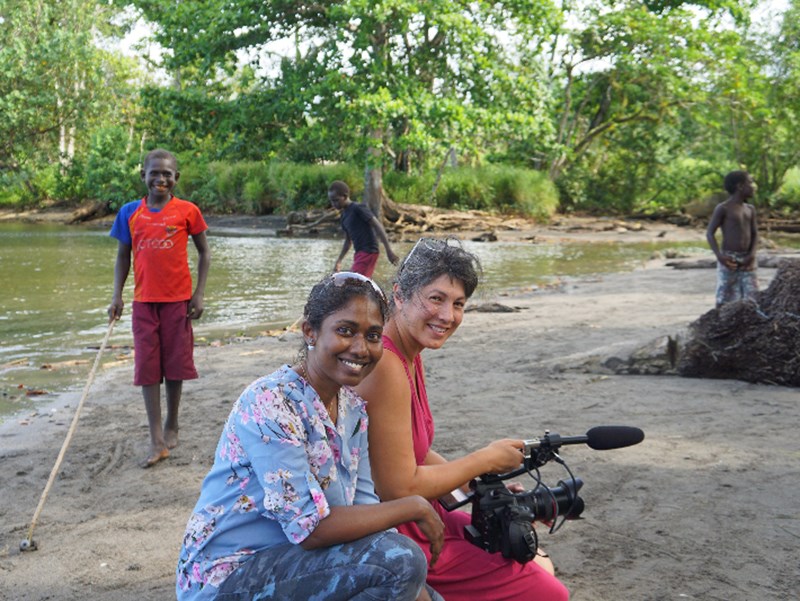Local filmmaker Claudia Medina recently returned from a trip that she said gave her a deeper understanding about climate change and the importance of bringing a message home.
Medina was invited to be part of a working tour to Papua New Guinea, in the southwestern Pacific Ocean, organized by Climate Wise Women. According to Medina, these women from around the world have been on the frontline of the discussion about climate disruptions and bring personal experiences from their own countries to their message for political leaders.
“I’m going to be making a short film out of this visit,” said Medina, who hopes to complete the film by the end of November and show it in Powell River. She is also looking at a longer film that connects the stories of all the people Climate Wise Women bring together, she said.
Medina was on the trip to document some of what has occurred with the relocation of entire communities from islands in the region. Due to climate change, residents of the Carteret Islands have been moved from their traditional villages and resettled on Bougainville Island, an autonomous region of Papua New Guinea.
Medina said Carteret islanders are dealing with the immediate impacts of the changing climate along with people struggling around the world with similar stories.
“It’s drought or rising sea levels or any other major impact that is forcing them to either relocate or do some serious mitigation or adjustments to their lives,” said Medina, adding that it is people with the least and the smallest carbon footprint who are the first to feel the effects of climate change and be forced to leave their traditional homes.
“It boggles my mind,” she said. “These people are dealing with relocating a whole community and culture into someplace very different.”
Medina said she is still trying to reflect on the experience and the lessons learned, including what is meant by development and sustainability.
“What they are doing in this relocated village is what a lot of people here are trying to do, such as having your own food sources, basically creating your own infrastructure and not being dependent on anybody,” she said. “From the outside it may look like very basic living, but at the same time what are we using as our standard?”
The reality for Carteret islanders was immediate because of the geography they were living in but, according to Medina, shifts and changes are happening here as well.
The relocation began about eight years ago, said Medina, and almost 200 people have made the move to date. However, the islanders actually knew much earlier their way of life was ending when the ocean started to rise, she said.
“They realized in the ’80s they had rising sea levels happening to a point that they would probably have to relocate at some point,” she said. “The speed of this is happening much faster than they imagined. It’s in the last 10 years that they really had to stop and realize they had to relocate.”
Carteret people took charge of their own relocation to a new village on Bougainville.
They have been called some of the world’s first climate-change refugees who Medina said “have lost their home and are going to have to start again.”



